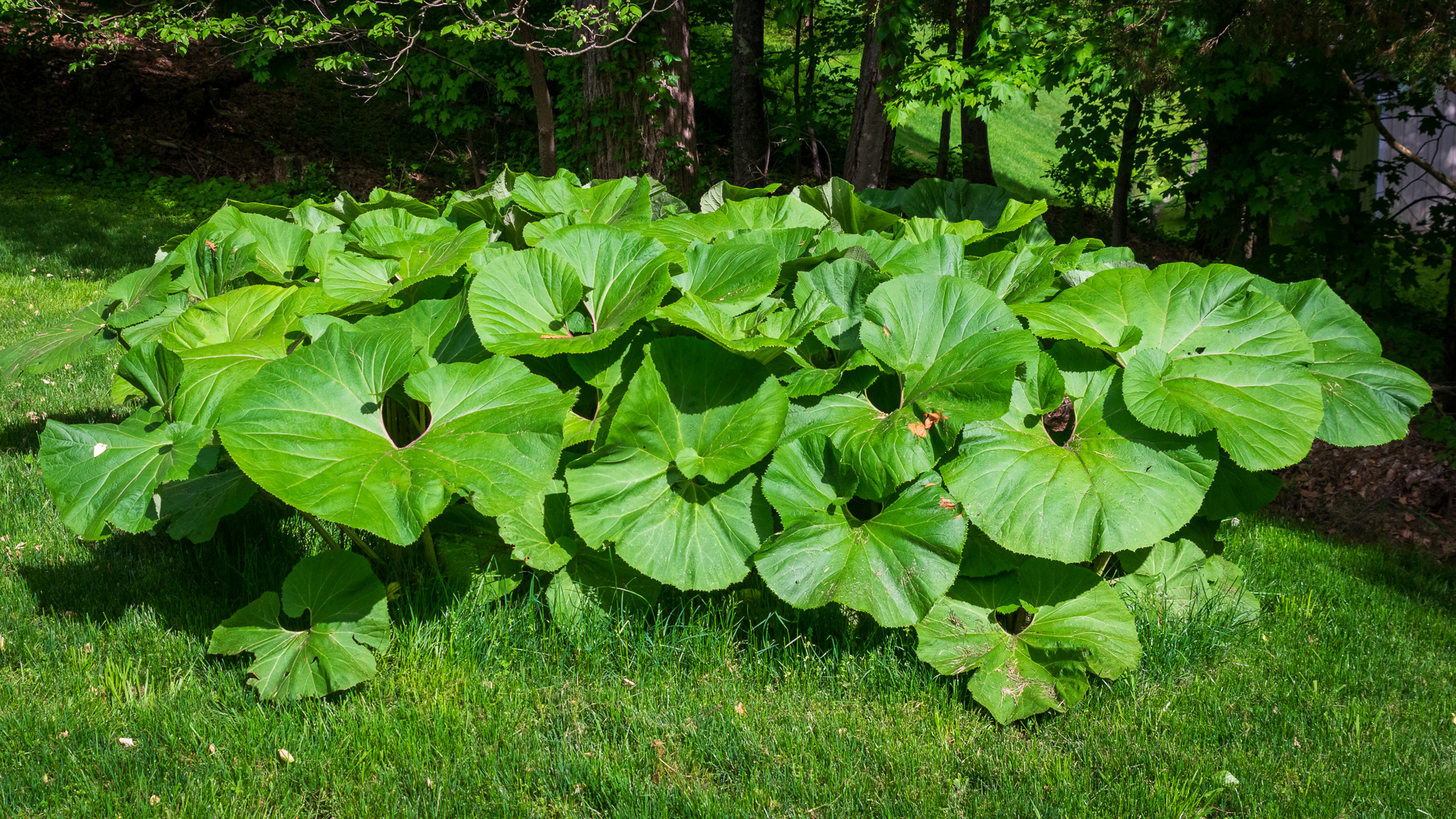Yesterday, I removed a plant from a client’s garden because of concerns over how fast it was spreading. Last year, the plant was about a quarter of its size.
Butterbur spreads from a thick, fleshy root 1/2 to 1 inch in diameter. New shoots start about every three feet along the root.
I put all the roots and plants on top of a pile of debris in the woods. If I see the remains starting to grow, I’ll cover it with a tarp to ensure its demise.
I’ve seen Petasites japonicus in a wet, boggy area where it took over.

Thankfully, I’ve never planted it.
Full disclosure: I originally posted this with the title unknown plant. However, thanks to knowledgeable gardeners in the comments below, I learned the plant is called butterbur (Petasites japonicus).

Comments
10 responses to “Butterbur – Petasites japonicus”
Could it be #5 on this page?
https://www.finegardening.com/article/top-10-large-leaved-perennials
Julie, I clicked the link but I’ve already used up my sample views of the website. Can you tell me the name of number 5?
#5 is butterbur. From the picture and description it definitely looks to me like what you’re dealing with.
Thanks Rebecca. It’s definitely butterbur. I saw the flowers when I was on the site over a month ago and I knew something wierd was going on when I saw them.
Could it be Butterbur or Giant Butterbur?
https://tualatinswcd.org/species/giant-butterbur/
You got it Jessica! It’s an amazing plant but too aggressive for my taste!
I didn’t recognize that plant. Glad some of you did.
I have this subtle feeling/sensation when I see plants in a garden that I don’t know…but instantly know they’re…trouble. I actually kind of hear, in a very quiet tone, the soundtrack from JAWS! I really do. And it’s always been correct: it’s telling me, THAT PLANT HAS NO BOUNDARIES.
That’s funny Lauren! I may start to hear the Jaws soundtrack when I see garden thugs too.
Possibly a ‘Petasites japonicus’ a member of the Asteraceae family they were introduced to Britisk Columbia by the early Japaneses migrants. I am not sure how far they have spread throughout North America. If they die back over winter this is a possibility. They love wet roots.
Petasites japonicus is what everyone is saying in this post. I was on the property in April and saw the flowers which had me totally baffled because I have never seen anything like them at that time of the year. Thank goodness I have never spotted them in the wild. I suspect the ones here came from a load of soil with some roots in it. There’s a propane tank under that mess of leaves that was installed recently.